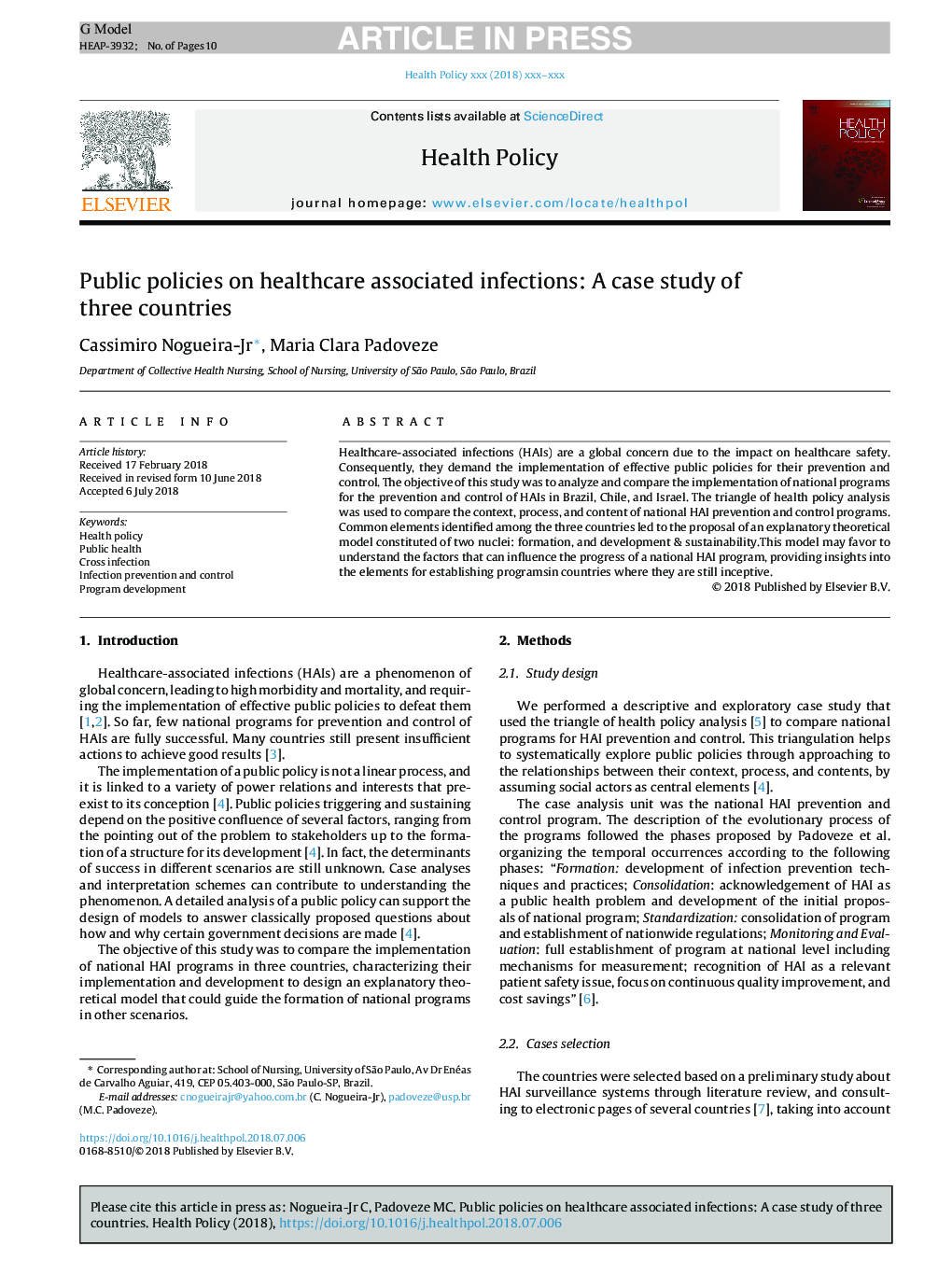| Article ID | Journal | Published Year | Pages | File Type |
|---|---|---|---|---|
| 8964793 | Health Policy | 2018 | 10 Pages |
Abstract
Healthcare-associated infections (HAIs) are a global concern due to the impact on healthcare safety. Consequently, they demand the implementation of effective public policies for their prevention and control. The objective of this study was to analyze and compare the implementation of national programs for the prevention and control of HAIs in Brazil, Chile, and Israel. The triangle of health policy analysis was used to compare the context, process, and content of national HAI prevention and control programs. Common elements identified among the three countries led to the proposal of an explanatory theoretical model constituted of two nuclei: formation, and development & sustainability.This model may favor to understand the factors that can influence the progress of a national HAI program, providing insights into the elements for establishing programsin countries where they are still inceptive.
Keywords
Related Topics
Health Sciences
Medicine and Dentistry
Public Health and Health Policy
Authors
Cassimiro Nogueira-Jr, Maria Clara Padoveze,
